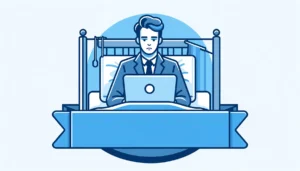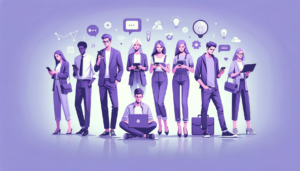COVID-19: 4 ways coronavirus could change employee expectations
- 5 Min Read
Despite the ongoing global uncertainty around the COVID-19 pandemic, one outcome is undeniable: employees will have a totally different set of expectations when it comes to their working lives. Here are four ways businesses might need to respond to changing employee demands post-coronavirus.
- Author: Sam Alberti
- Date published: Apr 28, 2020
- Categories

As the COVID-19 pandemic rages on, so too does the biggest corporate crisis the world has seen for two generations.
The short-term impacts of an emergency such as this are clear and straightforward. Namely, a series of distancing measures to slow the spread of the virus.
However, the long-term effects will be rather more nuanced and will only become fully clear once the dust settles.
Most notably, the status quo of the world of work is likely to undergo a seismic shift, with workers having grown accustomed to a certain new standard.
In simple terms, employers will have to grapple with a series of newfound expectations from their workforces. Here are some of the most likely outcomes business leaders can expect in employee expectations.
1. Flexible and remote working
This has undoubtedly been the most obvious and immediate impact of COVID-19 on the world of business, and perhaps also the most profound in terms of its potential to change the definition of ‘business as usual’.
Research and advisory firm Gartner conducted a study measuring the scale of the scenario, revealing that 15% of respondents said 61-80% of their employees are now working remotely.
What’s more, it showed that 41% (more than 2/5) are likely to continue doing so after the pandemic subsides. There is clear scope for this trend to influence the expectations of the remaining 3/5.
There is also a consensus that employees are benefiting greatly from these measures, with remote workers reportedly working 1.4 more days per month on average than those who work in an office.
Improved wellbeing and financial security are also among the potential benefits, so leaders must be wary that workers may become disgruntled if this is abruptly revoked.
2. Improved communication
With co-location now an impossibility for most businesses, there has been a concerted effort to emulate the experience of the workplace and ensure that employees remain happy, engaged and productive.
Much of this comes down to effective communication, with the employment of new measures such as more regular check-ins, organised social ‘events’ and even new Slack channels dedicated to more light-hearted, friendly communication.
What’s more, many leaders are adjusting the manner in which they interact with their teams, ensuring that they are being compassionate, considerate, transparent and encouraging open dialogue.
However, once again, this is likely to set a new standard, potentially altering the definition of what we consider to be effective communication.
This could prove to be damaging for employers, with a recent study showing that 66% of workers who plan to leave their jobs feel that communications have been ineffective.
Once this period of disruption passes, organisations must ensure that they do not subconsciously turn their back on the positive changes that were made, causing a sudden drop-off in communication as a result.
3. Work/life balance
Despite the chaos and turbulence of the pandemic crisis, some workers have been met with unexpected benefits. Improved work/life balance is surely one of the most prominent examples of this.
This is vital in today’s working world, with burnout proving to be an ever-increasing epidemic. A Gallup study even found that 44% of employees reported feeling burnt out at some point.
Flexible and remote working are thought to contribute greatly towards tempering this. The Gallup study goes on to point out that 80% of remote workers report higher morale and lower stress levels.
But the benefits of healthy work/life balance are thought to go beyond the scope of reducing burnout.
For instance, a study conducted by UCL found that white-collar workers who worked three or four hours longer than required had a 60% higher risk of heart-related problems.
This said, there is more to work/life balance than just health benefits. Many workers feel they can now ‘bring their whole selves to work’, with remote working causing the line between home and work to be somewhat distorted.
With this being the case, one can expect the status quo to drastically change where work/life balance is concerned.
Employees will expect more amenable hours or even permanent remote working in order to replicate the quality of work/life balance they had become accustomed to previously.
4. Effective benefits
Employee benefits is another aspect of working life that, in many cases, has been altered in accordance with the newfound pressures and demands of COVID-19.
During this time of hardship and disruption, employers must ensure that their workers feel safe and protected by the organisations they work for, whether that be in terms of health, flexibility or increased social activity within the company.
For instance, earlier this month, Direct Insurance Group rolled out a new employee package for staff, bespoke made in accordance with the current disruption.
The package offers such things as 1-2-1 video personal trainer sessions, tailor-made nutrition plans, exercise and health Q&A sessions and a new group quiz night for all staff.
These benefits clearly centre around the principle of encouraging health consciousness and boosting morale.
Other companies have devised their own approach to dealing with the situation, with tech giants Apple and Amazon offering stints of unlimited sick pay to all workers.
Once again, the potential implications of this are clear. Though the introduction of such benefits is generous and highly valuable, a hasty withdrawal of them may provoke feelings of disenchantment among employees.
For this reason, it is very probable that many organisations will be required to rethink their approach to employee benefits once business as usual recommences.









